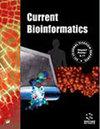心脏骤停预测医学专家系统综述
IF 2.9
3区 生物学
Q3 BIOCHEMICAL RESEARCH METHODS
引用次数: 0
摘要
背景:预测心脏骤停对于及时干预和改善患者预后至关重要。机器学习通过对复杂数据提供量身定制的预测分析,产生了惊人的结果。尽管医学专家系统取得了进步,但仍需要对其在心脏骤停预测中的有效性和局限性进行全面分析。这一需求的出现是因为没有足够的现有研究,彻底涵盖了这一主题。目的:本系统综述旨在分析心脏骤停预测医学专家系统的现有文献,填补知识空白,找出关键挑战。方法:本文采用PRISMA方法对PubMed、Springer、ScienceDirect和IEEE近十年发表的37篇论文进行系统评价。在选择过程中,采用了仔细的纳入和排除标准,从而进行了综合分析,利用五个集成层-研究目标,数据收集,特征集生成,模型训练和使用各种机器学习技术的验证。结果与结论:研究结果表明,目前的研究经常使用集成和深度学习方法来提高机器学习预测的准确性。然而,它们缺乏适当的预处理技术的充分实现。需要进一步的研究来解决与外部验证、实施和在实际临床环境中采用机器学习模型相关的挑战,以及将机器学习与人工智能技术(如NLP)集成。本综述旨在为新手和有经验的研究人员提供宝贵的资源,提供对当前方法的见解和潜在的未来建议。本文章由计算机程序翻译,如有差异,请以英文原文为准。
A Systematic Review of Medical Expert Systems for Cardiac Arrest Prediction
Background:: Predicting cardiac arrest is crucial for timely intervention and improved patient outcomes. Machine learning has yielded astounding results by offering tailored prediction analyses on complex data. Despite advancements in medical expert systems, there remains a need for a comprehensive analysis of their effectiveness and limitations in cardiac arrest prediction. This need arises because there are not enough existing studies that thoroughly cover the topic. Objective:: The systematic review aims to analyze the existing literature on medical expert systems for cardiac arrest prediction, filling the gaps in knowledge and identifying key challenges. Methods:: This paper adopts the PRISMA methodology to conduct a systematic review of 37 publications obtained from PubMed, Springer, ScienceDirect, and IEEE, published within the last decade. Careful inclusion and exclusion criteria were applied during the selection process, resulting in a comprehensive analysis that utilizes five integrated layers- research objectives, data collection, feature set generation, model training and validation employing various machine learning techniques. Results and Conclusion:: The findings indicate that current studies frequently use ensemble and deep learning methods to improve machine learning predictions’ accuracy. However, they lack adequate implementation of proper pre-processing techniques. Further research is needed to address challenges related to external validation, implementation, and adoption of machine learning models in real clinical settings, as well as integrating machine learning with AI technologies like NLP. This review aims to be a valuable resource for both novice and experienced researchers, offering insights into current methods and potential future recommendations.
求助全文
通过发布文献求助,成功后即可免费获取论文全文。
去求助
来源期刊

Current Bioinformatics
生物-生化研究方法
CiteScore
6.60
自引率
2.50%
发文量
77
审稿时长
>12 weeks
期刊介绍:
Current Bioinformatics aims to publish all the latest and outstanding developments in bioinformatics. Each issue contains a series of timely, in-depth/mini-reviews, research papers and guest edited thematic issues written by leaders in the field, covering a wide range of the integration of biology with computer and information science.
The journal focuses on advances in computational molecular/structural biology, encompassing areas such as computing in biomedicine and genomics, computational proteomics and systems biology, and metabolic pathway engineering. Developments in these fields have direct implications on key issues related to health care, medicine, genetic disorders, development of agricultural products, renewable energy, environmental protection, etc.
 求助内容:
求助内容: 应助结果提醒方式:
应助结果提醒方式:


